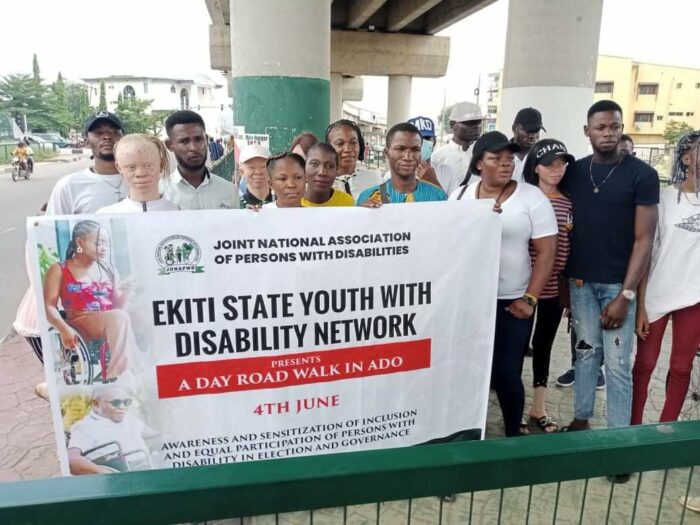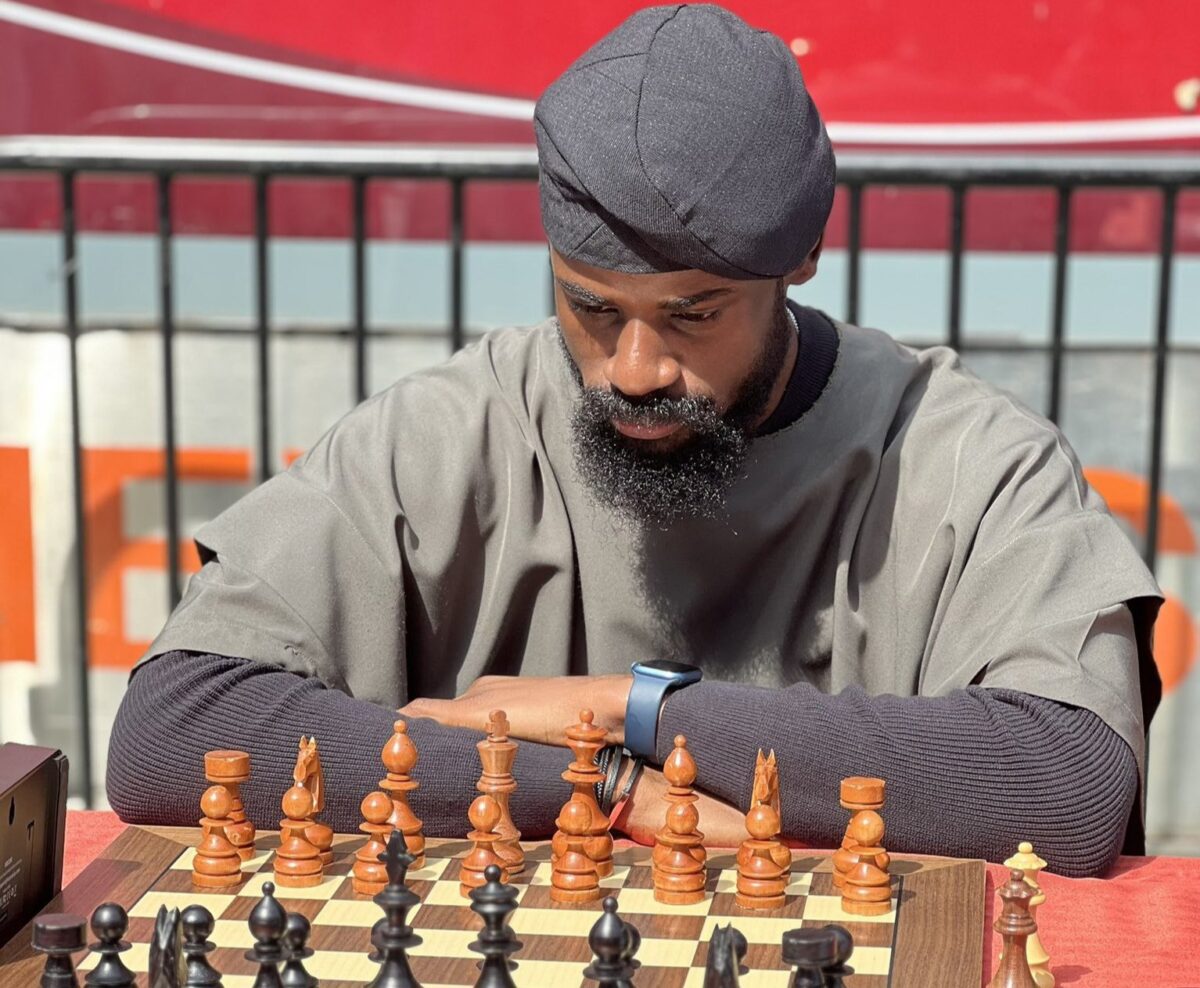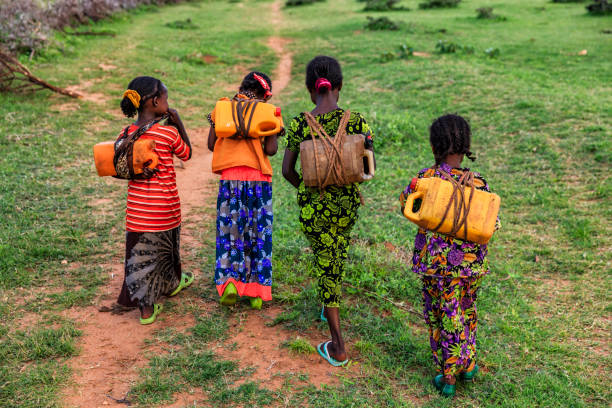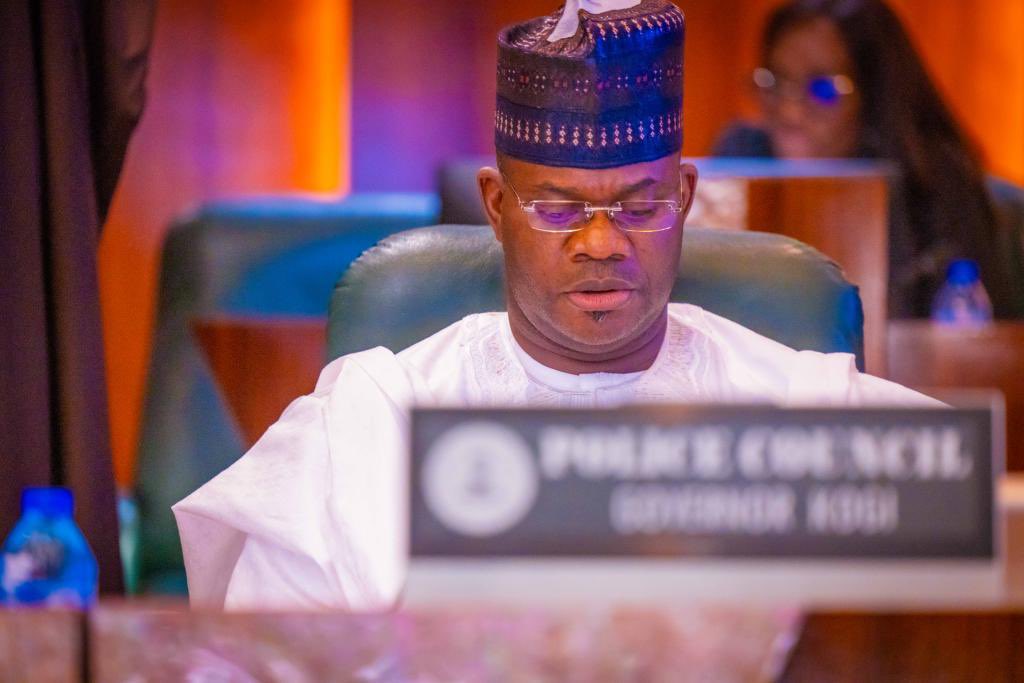In 2020, the Ekiti State Government introduced the ‘Discrimination Against Persons With Disabilities (Prohibition) Law’. A year later, the Federal Government of Nigeria made it compulsory for government agencies and ministries to allot 5 percent of their employments to PWDs. These laws don’t matter much in Ekiti, writes DANIEL OJUKWU.
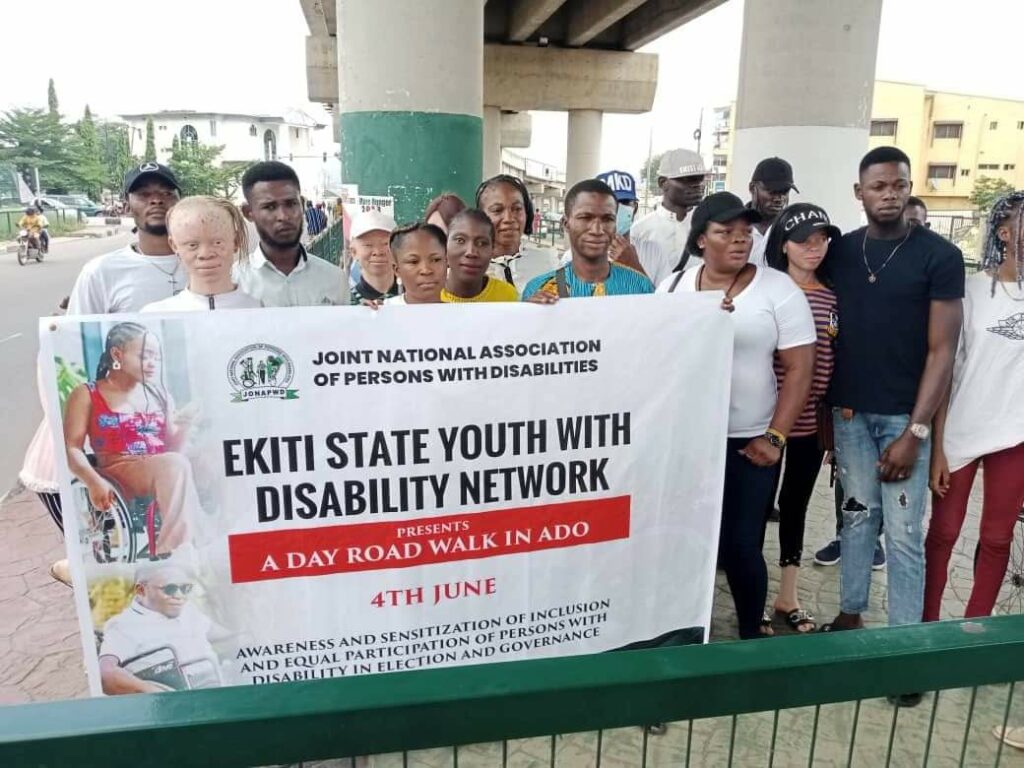
By noon of September 22, 2022, the Fajuyi Pavilion, Ado Ekiti, in Ekiti State, was welcoming disgruntled members of a marginalised minority of the state’s residents.
They had travelled from across the state to come tell different stories of how they were each carrying burdens only they could understand.
These men and women had told FIJ they wanted fair shots at competing with the majority of the Ekiti people in the labour market.
They were educated: either completed secondary education and were unable to afford more or possessed certificates from tertiary institutions. But they were all deemed unfit for employment owing to a technicality. They were persons with disabilities (PWDs).
Strolling into the pavilion with murmurs of discontent that had grown tired and worn-out owing to years of use were members of the Ekiti State Youth With Disabilities Network (EKSYWDN).
In a short while, they had settled into seats, and traded their fear of the government for an opportunity to fight for their rights without taking to the streets to protest and ending up as easy targets for an oppressive police.
FIJ would later learn that sometime in 2021, the PWDs marched with placards to protest the unfair marginalisation they had suffered at the hands of successive governments for the better part of a decade.
During that protest, “Police came to harass and chase us away,” they told FIJ.
They said they were now targeted and vulnerable. They wanted to tell their stories but didn’t want to suffer malice from the government and its agencies.
FIGHTING FOR RIGHTS THAT ARE LEGALLY BINDING
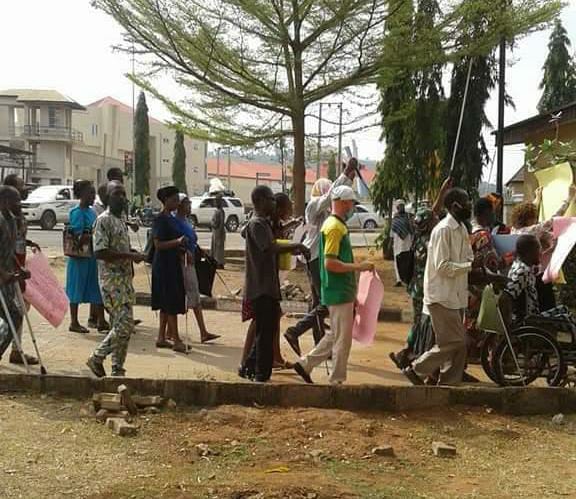
Fatiu Mojeed* used to live in Lagos until he decided to return to Ekiti, his native state, sometime in 2017.
He is a father of two, who never attended a tertiary institution but holds a certificate for completing secondary education.
He told FIJ he left Lagos because “things became difficult” and hoped to live a simpler life in his hometown as he “was not interested” in job-hunting again.
In 2019, he fathered his second child and decided he needed a job. He passed the entry test into the Civil Service Commission but was never invited for an interview.
“I used my SSCE to apply, and luck for me, I passed,” Mojeed told FIJ. “We were expecting them to call us for an interview, but nothing was done.
“Everybody that applied did so online with N1,050 paid into the bank, and then we got codes to log in to the site and apply.
“Later, they started giving us excuses of COVID-19. They never talked about it till now.”
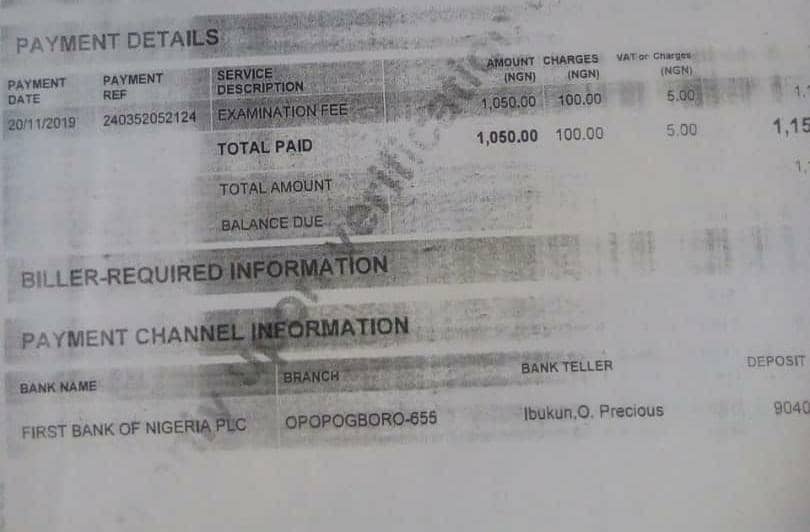
Mojeed told FIJ the topic of the commission’s recruitment exercise never came up again, and worse still, the state government introduced legislation that protects and caters for PWDs, but only on paper.
He said the Kayode Fayemi administration, in 2020, passed into law the Ekiti State Disability Law, but despite its existence, members of EKSYWDN continued to clamour and lobby for the same things that are legally binding.
Mojeed said, “The next employment was this local government commission. The law has been enacted for us to have five percent minimum quota of all employment by the Ekiti State Government, but nobody is implementing it.
“We tried and tried to get employment during this recruitment. They said we should bring our names, so we sent six names to them. They did nothing about it, and this was sometime last year.”
All employers of labour in public organizations shall, as much as
Ekiti State Disability Law, 2020 (Part VI, 29)
possible have persons with disabilities constituting at least 5% of their
employment, but this quota shall not prevent the rest of people with
disabilities from competing with other applicants for the same
employment.
The law came into effect less than a year after Mojeed wrote and passed the entrance examination, but he still was denied an opportunity to audition for the role fairly.
Two years after the law’s introduction, he said he and many others in the network had given up on job-hunting and committed themselves to advocating for opportunities for the rest of them.
‘MY DAD HAD AN ACCIDENT, BUT THE GOVERNMENT WILL RATHER FIRE HIM THAN EASE HIS WORK’
Funmilayo Adigun* is a member of the network, and is hard of hearing. She has been unable to find a job as no one would hire her.
When she spoke with FIJ, she said she had accepted her fate as she grew up with her disability, and had come to endure the stigmatisation that came with it.
She, however, lamented the ill treatment meted by the government to her father, who was also deaf but was employed as a teacher in a state-owned primary school.
Adigun told FIJ her father survived an accident months earlier and pleaded with the government to transfer him to work in an institution closer to home, but his pleas fell on deaf ears.
READ ALSO: REPORTER’S DIARY: Inside Lagos Banks Where People With Disabilities Are Neglected
“They asked him to go back to the job before they could do the transfer,” Adigun recalled. If he failed to do so, he would forfeit the job.
“This employment of a thing, some of them are not contented with the places they are offered jobs at. The ones who are employed spend their money transporting themselves to their workplaces.
“Some of the employed PWDs spend all their money on transportation, and are paid meagre salaries that cannot cater for their welfare. They then depend on family members for support and stipends.
“It has not been easy for them, and seeing some of my people, I know that there are those that don’t have a job. It has not been easy for them, sincerely.
“Some of them are depending solely on their family members and it appears as though they cannot do anything. Meanwhile, they have a lot of talents to deploy if the government gives them opportunities.”
Adigun expressed a worry over a growing trend of parents of disabled children refusing to train their wards in schools because they have no faith in the system.
She said the issue of lack of employment opportunities was known, and parents of these wards had formed the opinion that education for their wards would be a waste of investment since they “would always be dependent”.
Explaining passionately the depth of the problem, Adigun said, “Those people that are keeping their children at home will know that if they are able to educate their children, they have an opportunity of getting a job from the government.
“You know, if they are not getting jobs now, these parents will be of the opinion that they are still the ones that will be taking care of them, but if they see that the government is actually employing them, they will sure that their children also have a future.
“They will have reasons to educate their children because some of them now, they are not educating their children because they believe that they cannot have anything to do in the end.”
‘WE INCUR MORE COSTS THAN ABLE-BODIED PEOPLE, BUT GOVERNMENT TELLS US TO NOT WORRY’
When FIJ was speaking with members of the network, many were nodding in agreement with what Mojeed and Adigun were saying, and there was unison in their feelings towards the government that was supposed to protect their interests.
Hands quickly went up to indicate there was more yet to be said about the treatment meted to them.
Femi Kolawole* had one of the hands that was up. His was a story of how the government had assured them of help since 2019 but regularly clamped down on them during protests.
Kolawole said, “In 2019, we protested. They called us afterwards and said ‘don’t worry, we will get back to you’, but they never did. I hope the next government is more responsive.”
He expressed this hope back in September while referring to the Fayemi administration, but a new governor now occupies office and tells them he is different.
Kolawole was convinced the issue of neglect was pressing. He was crippled and daily paying the cost of being a disabled person in the state.
“We pay the same bills as everyone else in the state,” he claimed.
“The same bill that you that have work you pay is what we are paying. The same food you buy, we buy, and let me tell you something, the amount we pay on transportation is more than what the people without disabilities pay.
“For instance, I’m going to that place, that very distant place,” Kolawole said while pointing in the distance as he attempted to paint a picture of a journey of roughly 400 meters.
“A person without disabilities can still manage to walk, but me with disabilities, I cannot try it. So, I have to take a bike. Our daily expenses are higher despite the fact that we do not enjoy employment benefits.
“These are the things we advocated for, and asked that they put into consideration.”
‘FAYEMI AND FAMOSAYA DRIBBLED THE PWDs’
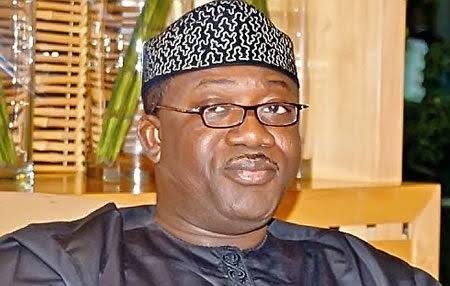
A source within the state government, who asked not to be named as he was not authorised to speak to the press, accused Fayemi and Olubunmi Famosaya, a former chairman of the state civil service commission, of intentionally neglecting the PWDs.
The source told FIJ that on several occasions, Fayemi’s adviser on disability would visit Famosaya in his office to lobby for jobs for six PWDs but would be made to wait unattended to for long hours and asked to return on days Famosaya would not be available.
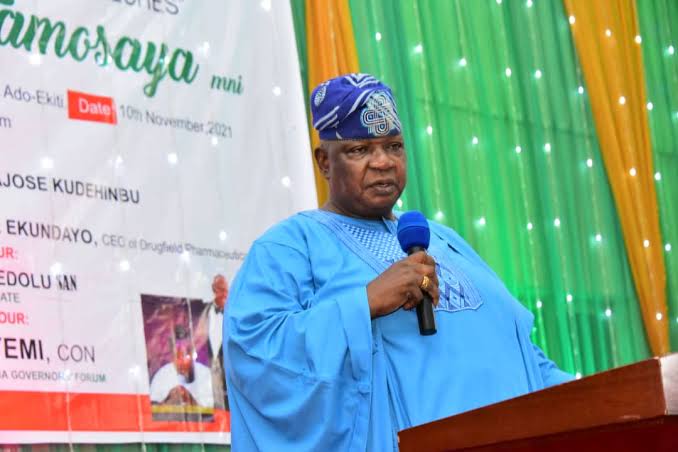
The source said this ill treatment was communicated to the governor several times but he took no actions.
“Six persons living with disabilities were nominated into the Civil Service Commission for employment,” the source told FIJ. “They collaborated under the National Association of Persons Living with Disabilities in Ekiti State.
“One member each was picked from all the clusters of disability in Ekiti, the blind, the deaf, the physically challenged and the Albino and two others, which amounted to six, and their names were sent to the Civil Service Commission for recognition, but the commission didn’t act on the names.
“The SSA visited the commission to see the chairman so they could do something about it. He was there from 8 am to 2 pm, while the chairman was present in his office and duly informed that the SSA on persons living with disability was waiting to see him.
“When he eventually attended to him, Famosaya promised to give jobs to the six nominees, but he later backtracked and offered just one vacancy to one candidate after days of disrespecting the SSA.
“When Fayemi was made aware, he did not call the CSC boss to order. He sent a letter asking him to attend to the SSA. Agbede kept giving him the excuse that he was working on election campaigns. The election was held on June 18, 2022.”
The source said the PWDs had been fighting for their rights with the help of the Joint National Association of People Living With Disabilities (JONAPWD).
WHAT THE LAW SAYS
The 2020 Ekiti State Disability Law not only guarantees a five percent employment quota in every state public organisation, but provides for an agency for PWDs.
In Part VII of the document, tagged “Establishment of State Agency for Persons with Disabilities”, it is stated that there should be an agency that caters for PWDs in the state.
Sources, however, told FIJ that there were no functional agencies meeting this requirement.
The legal provision reads:
1 ) There is hereby established the State Agency for Persons with Disabilities (in this Law referred to as the “Agency” to be placed under the Office of the Governor.
(2) The Agency:-
(a) shall be a body corporate with perpetual succession and a common seal;
(b) may sue and be sued in its corporate name; and
(c) may acquire, hold and dispose of property, movable or immovable.
(3) The head office of the Agency shall be in the State Capital, Ado-Ekiti.
Establishment and Membership of the Governing Board.
32. (1) There is established a Governing Board for the Agency (in this Law referred to as the “the Board”) which shall conduct the affairs of the Agency.
(2) The Board shall consist of-
(a) a part time Chairman who shall be a person with disability;
(b) one person with disability from each Senatorial District in the State;
(c) a representative each from the Ministry of –
(i) Education,
(ii) Health,
(iii) Sports,
(iv) Women Affairs,
(v) Housing,
(vi) Transport,
(vii) Environment,
(viii) Labour and Productivity,
(ix) Justice,
(x) Finance; and
( d ) a representative each from the State Human Rights
Commission and the State Planning Commission.
(3) The Chairman of the Board and one representative each from the three Senatorial Districts in the State, shall be appointed by the Governor subject to the confirmation of the House of Assembly.
On December 9, 2021, Yemi Osinbajo, Vice President of Nigeria, described it as criminal for ministries, extra-ministerial departments and agencies of government to deny persons with disabilities the opportunity to work if they have the requisite skills.
Through George Akume, Minister of Special Duties, Osinbajo said, “The Federal Government has also directed the executive secretary of the commission, James David Lalu, to come up with strategies that will alleviate the sufferings of PWDs, especially to disengage those who are into street begging.”
WE WOULD HAVE SUED, BUT WE ARE WAITING UNTIL NEXT YEAR — JONAPWD
Yusuf Reheem is the Assistant-Secretary for JONAPWD. He told FIJ the body was aware of laws that protect the interest of PWDs across the country but was yet to take legal action.
Speaking with FIJ in a telephone interview, Raheem said the association was engaging the government in dialogues and was advocating for respect for the laws instead of seeking legal redress.
He told FIJ JONAPWD would be taking legal action in 2023 “if they (government) do not enforce the provisions of these acts”.
Reacting to PWDs missing out on employment opportunities, Raheem said, “We are advocating and working around the promotion of inclusion and enlightenment, so people can do the right things.
“However, the situation is beyond that, as it requires deliberate moves by the governments to enforce these provisions.
“There is no deliberate action for government to be intentional in enforcing it. We can sue them from next year if they do not enforce the provisions of these acts.
“Within the JONAPWD, we are trying to see that they are enforced.”
WE WILL PRIORITISE WELFARE OF PWDS — OYEBANJI
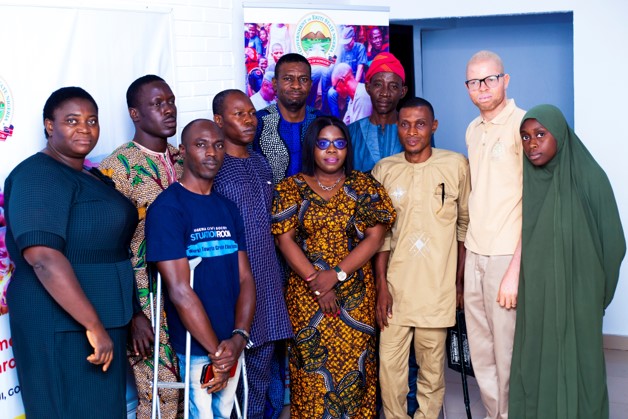
Earlier, we learned that PWDs had developed faith in Biodun Oyebanji, the current Ekiti governor, and were hopeful his administration would be different from the ones before him.
Three months after Kolawole expressed his hopes for a more responsive government, Oyebanji, through Mary Omotosho, his Senior Special Assistant on Community Communications, held a meeting with the state’s chapter of JONAPWD.
During this meeting, the state government promised to prioritise the welfare of PWDs and follow the letters of the law in catering for them.
A source who was privy to the meeting told FIJ it was held on Wednesday, December 12, and there were “positive signs”.
The source quoted Omotosho as saying “Governor Oyebanji does not take matters of people with disabilities for granted, hence their inclusion in the communication engagement plan of the government”.
During the same meeting, the JONAPWD leadership appealed to her to help sensitise the state residents who had resorted to stigmatising them.
FIJ mailed Yinka Oyebode, Chief Press Secretary to the Ekiti State Governor and Special Adviser on Media and Strategy, for comments on why PWDs were unable to secure jobs despite the legislation. He had not replied at press time.
*Names have been altered to protect the identities of sources.
This report was produced with support from the Wole Soyinka Centre for Investigative Journalism (WSCIJ) under the Collaborative Media Engagement for Development Inclusivity and Accountability project (CMEDIA) funded by the MacArthur Foundation
Subscribe
Be the first to receive special investigative reports and features in your inbox.


